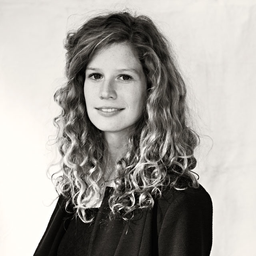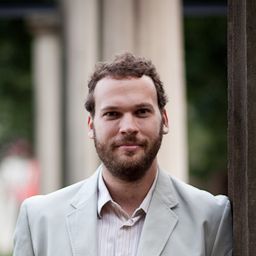How do Rights Change Heritage?
My Session Status
This is reflected in the incorporation of references to human rights in a series of key international heritage-related conventions, including the UNESCO Convention for the Safeguarding of Intangible Cultural Heritage (2003), the UNESCO Convention on the Protection and Promotion of the Diversity of Cultural Expressions (2005) and the UN Declaration on the Rights of Indigenous Peoples (2007). Moreover, the advisory bodies to the World Heritage Convention are undertaking efforts to improve the understanding of the rights dimension in World Heritage work and a wider set of debates about the role of rights in heritage practice is taking place among scholars, as witnessed by a growing amount of academic publications on the topic. These debates emerged in the context of the rise of the human rights discourse globally as well as an increased concern in the heritage sector with the ethical implications of its work.
Despite this increased interest in the links between heritage and rights, it remains a highly contested area. Views vary with regard to whether the link is useful or harmful, effective or inhibiting. This is partly due to the diverse cultural contexts in which this relationship is considered. Moreover, both rights and heritage can be understood in widely different ways. For example, there are different consequences when rights are interpreted from a strictly legal perspective or when the discursive capacity to initiate debates about ideas of justice is foregrounded.
In the context of this contestation, critical reflection is necessary on the appropriateness of the adoption of a global or universal framework to address issues of social justice in culturally diverse situations. This session aims to bring together researchers from different disciplinary backgrounds to critically discuss the extent to which engagement with "rights" (whether in a legal or more discursive sense) could provide a means to address issues of social justice in heritage contexts, contributes to existing tensions or perhaps does not make much difference. Contributors are encouraged to consider enabling conditions for respecting rights in heritage contexts, the pitfalls or limitations of the link between heritage and rights, and how rights are used in heritage situations "on the ground."
With the overarching question—How do rights change heritage?—the session contributes to the broader theme of the conference by considering the following: when rights are linked to heritage, what does heritage change?
Sub Sessions
The town of San Basilio de Palenque, in Colombia, was proclaimed “Intangible Cultural Heritage of Humanity” (ICHH) by UNESCO in 2005. Since the declaration, a small group of community members has disproportionately benefited from the nomination and gained privileged access to financial resources and political power. In this paper, I reveal how local intellectual elites have used the language of heritage-based rights to justify their current status, resulting in entrenched social exclusion ...
This paper will focus on concepts of cultural diversity and intangible heritage with particular reference to the notion of human rights. The discourse of human rights is a product of modern times, emerging first during the European Enlightenment in the seventeenth and eighteenth centuries. In the wake of the Second World War, international covenants such as the United Nation’s International Covenant on Civil and Political Rights (1966) and the International Covenant on Economic, Social and...
The conceptualization of heritage can only resonate when a community has achieved acknowledgement of its role in society. For minority groups, the concept of heritage is internalized and utilized for the preservation and continuation of practices, traditions, and the transmission of knowledge and identity. Yet this heritage may be, for all intents and purposes, invisible or beyond the detection of mainstream society, or decried as something anathema to the precepts of the culture at large....
Following decades of isolation, Myanmar started to re-engage with the UNESCO’s World Heritage system in 2012 at a time when the link between heritage and rights became increasingly recognized in both the policy and scholarly areas. Based on six months of doctoral fieldwork and taking a discursive approach to rights, this paper will critically reflect on the usefulness of the rights discourse to address the ethical challenges related to the World Heritage nomination of the ancient city of B...
Over the last decades a language of rights and human rights-based approaches have been adopted by intergovernmental organizations and are now well established within the global development arena. Alongside the shift from material and monumental focus toward the intangible and ordinary, alternative expressions and uses of heritage, a number of global heritage organizations have now also adopted these approaches and language by including references to human rights in heritage conventions and...
A number of actors within the World Heritage system have, within recent years, started addressing rights, rights-based approaches and language. This includes advisory bodies, NGOs, states parties as well as the secretariat. This paper will offer a historical overview and seek to analyze the major dynamics in terms of specific drivers, contested dynamics and effects. Although these dynamics are on-going and complex, the paper will seek to build on insights from engagement with the advisory ...
Cultural Heritage appears in both tangible and intangible forms and in many cases, it is difficult to separate the two. What role do intellectual property rights take in the human rights lens of intangible cultural heritage? As seen throughout much of the discussions permeating from two decades of negotiations at the World Intellectual Property Rights regarding traditional knowledge and traditional cultural expressions, there are clear disagreements as to overlapping yet distinct interests...
Cultural heritage, and international cultural heritage law (ICHL) with it, has been consistently used over time as a means to build identities, and international human rights law (IHRL) has become a cogent legal discourse to safeguard those identities. The example of the movement for promoting the human rights of indigenous peoples is particularly telling: the international indigenous movement since the 1970s has chosen to use culture as the main banner behind which to rally support for th...



